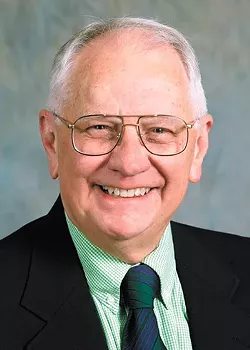Donald Trump has forged himself from American popular culture. He has participated in various entertainment forms: beauty pageants, casinos, reality TV and professional sports. He has also intuitively tapped into a number of long-developing entertainment themes concerning, for example, the self-made individual, the power of positive thinking, celebrity, identity, the American dream, patriotism, consumerism, loners who challenge the system, the gospel of wealth, winners and, of course, losers. Trump exemplifies how amusements have shaped what has become "The Age of Show Business," as the cultural analyst Neil Postman has dubbed it. The merger of politics and entertainment has been developing for some time, but Trump, always proclaiming his talents, has sealed the deal.
The problem with politics, according to Trump, has been that it's "boring." Or, in the words of his friend Roger Stone, "Politics is show business for ugly people." It's an arena that the "never-boring" Trump believed he could change. In that regard, Trump has pointed to P.T. Barnum (1810-1891), America's foremost pioneer of popular entertainment. Starting out in the 1830s as one of many "hawkers and walkers" who trudged the country with various exhibits and acts, Barnum soon purchased a dime museum in New York City, turning it into the 19th-century equivalent of Disneyland. Then, with James Bailey, he transformed what had been lowly traveling circuses into The Greatest Show on Earth. Many years later, Trump hailed Barnum as a model: "We need P.T. Barnum... because we have to build up the image of our culture."
Like Barnum, Trump has ingeniously promoted his businesses and himself. Hucksterism, bravado, spectacle, exaggeration and a slippery handling of facts have characterized both men's careers. Barnum described himself as the "Prince of Humbug," the era's popular term for flimflam, chicanery, duplicity and swindle. In that spirit, he urged customers to pay to see a "man-eating chicken" who turned out to be a man eating chicken. "Vive la humbug," Barnum chuckled, admitting that such "blarney" filled his pockets with money. In that spirit, he wrote The Art of Money Getting, a book that presaged Donald Trump's The Art of the Deal.
Skillful implementation of humbug can translate into smart business, financial success and popular amusement. Barnum took pride in his deceptions, as Trump does in his. Humbug, for Barnum, was a crucial aspect of merchandising. He practiced it with an implicit nudge and wink, assuming that his customers were eager participants in the joke and enjoyed being fooled. Such a perspective was, of course, itself deceptive, making it easier to ignore humbug's harmful effects on the customer (or mark).
Barnum's inflated sense of importance — he published three versions of his autobiography — muted his feelings for others. Although he thought he treated well the "human curiosities" and "freaks" in his museum and sideshows, he nevertheless displayed them for profit. But even Barnum's fascination with himself may not match that of Trump, who, according to some observers, reaches the level of unbridled narcissism.
Certainly both men craved the center stage. But the stakes are substantially higher for President Trump than they were for Barnum. When customers left Barnum's circus tent, sideshow or museum, they could praise him for entertaining them or curse him for having duped or fleeced them. Trump's newest venue is much larger. The New York Times nevertheless reported that, "Before taking office, Mr. Trump told top aides to think of each presidential day as an episode in a television show in which he vanquishes rivals."
A nation — let alone the larger world — is not a palace of amusements. As the leader of an entire nation, Trump can no longer settle for the role of wealthy entertainment impresario. Matters of social policy and international relations require far more than self-promotion, ostentatious display, bravado and sensationalism. In that context, the art of the hustle can all too quickly lose any playful innocence. On the world stage, rhetorical grandstanding can exact terrible results.
"Now and then," Barnum recalled, "someone would call out 'humbug' and 'charlatan,' but so much the better for me. It helped to advertise me." Years later, in that vein, Donald Trump would write: "I play to people's fantasies. People may not always think big themselves, but they can still get very excited by those who do. That's why a little hyperbole never hurts." Trump's words would have made Barnum proud. "I call it truthful hyperbole," Trump said of his merchandising style. "It's an innocent form of exaggeration — and a very effective form of promotion."
Humbuggery and "truthful hyperbole" are two sides of the same coin — or con. ♦
LeRoy Ashby is regents professor emeritus at Washington State University, where he taught for 36 years. He is the author of six books on American history, most recently With Amusement for All: A History of Popular Culture In America since 1830.
















